
A question we get asked a lot at Fictionary is, how many words should be in my novel? You can spend a lot of time trying to answer this question. And—if you’re like me—when you can’t answer it yourself, you go straight to your search engine of choice and type, “How many words in a novel?”
And, while this is a good place to start, the results can be confusing, and far too general. The answer, “a novel can be anywhere between 50,000 and 150,000 words long isn’t that helpful.
There’s a simple reason for this. Answers like these don’t take genre into account.
Readers of a certain genre have word count expectations. If you offered a romance reader a 150,000 word sweet contemporary romance, they’d likely respond with an eye roll and an emphatic, “No thanks.”
But if you offered a 150,000 word epic fantasy novel to an epic fantasy reader, they’d probably fist pump the air and snatch the book out for your hand.
Let’s look at genre-specific word counts.
Why Is a Novel Word Count Important?
Readers Have Genre Expectations
As discussed above, readers have genre expectations. Look at a selection of books in your favourite genre. You’ll see most of these books have a similar page count, meaning they have a similar word count. Because most readers want “the same, but different,” they expect a certain book length when searching for their next read.
Cost Factors
If you’re an author who decides to self-publish, or a publishing company producing other authors’ work, there are costs involved. Costs for production and printing specifically. The higher the page count, the higher the printing costs. If an author or publisher specialises in a genre with a high word count, they need to be aware of the higher associated costs.
Upper Limits for Word Counts in Books
Most genres have an upper limit for word counts. Even genres that tend towards the epic end of the scale, like some subgenres of science fiction and fantasy, have upper limits. While you can write a 300,000 military sci-fi novel, that doesn’t necessarily mean you should.
Novel Word Count by Age Range
Middle Grade Fiction (30,000-50,000 words)
- Age Range: 8-12
- Demographic: Children reading with adults on the younger end, and children reading by themselves on the older end
Young Adult Fiction (50,000-90,000 words)
Age Range: 12-18
Themes: Characters who are facing personal growth and self-identity challenges
Adult Fiction (50,000-150,000 words)
Age Range: 18+
Word Count Considerations: While the word count range is vast here, it’s depends on genre, which we’ll discuss next
How Many Words is a Novel by Genre
Romance Novel Word Count (50,000-90,000 words)
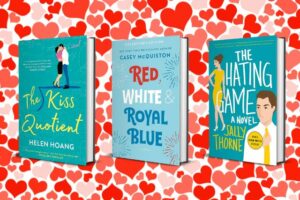
Romance novels centre around a relationship between two or more people.
The conflict arises because they can’t be together until the end of the novel. Obviously, there are many subgenres of romance, and it would be impossible for me to cover all subgenre word count specifications here.
Although romance deals with character development, they’re also plot driven, with a defined structure (i.e., meet cute, false break up, HEA/HFN, etc.). The prose is usually clean (less lyrical). Both these things account for romance on the short end of the word count spectrum.
But aiming for a 50,000-90,000 word count for this genre is your best bet, and it’;s what readers are used to.
Mystery and Thriller Novel Word Count (60,000-80,000 words)
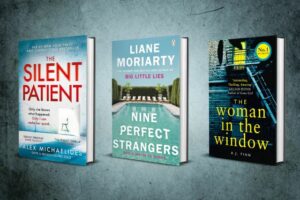
Mysteries and thrillers are fast-paced, with shorter chapters, shorter scenes, and shorter sentences. They involve a crime (e.g., theft, abduction, murder, etc.) and the protagonist must solve it.
Some subgenres are “slower-paced”, like cosy mysteries, but that doesn’t mean they’re slow.
Thrillers are usually longer than romance novels, but—in order to keep the pace—rarely exceed 80,000 words.
Fantasy Novel Word Count (80,000-150,000 words)
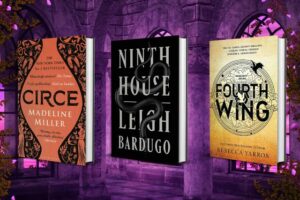
Now we’re into the big guns of word counts in books.
The fantasy genre boasts some of the longest novels on the market, and part of this has to do with the amount of world-building that goes into a fantasy book. High and epic fantasy authors build worlds from scratch. So, it takes more words to describe the world so readers can see it clearly.
There are some subgenres where a lower word count is fine (i.e., contemporary or urban fantasy), but most fantasy readers are more than happy with a 150,000 word tome.
Science Fiction Novel Word Count (80,000-120,000 words)

While not as large as fantasy novels, sci-fi novels still pack a hefty punch in terms of word count.
Again, sci-fi authors have a good deal of world-building to do. Couple this with the futuristic technology they need to describe to readers, and is it any wonder the word count is vast. Oh. and while we’re talking about world-building and tech, hard sci-fi novels can be longer than soft sci-fi novels.
Hard sci-fi readers want all the science explained, and soft sci-fi readers are happy to leave some of the science behind the tech ambiguous.
Either way, a word count between 80,000 and 120,000 words is most common for the genre.
Horror Novel Word Count (70,000-100,000 words)
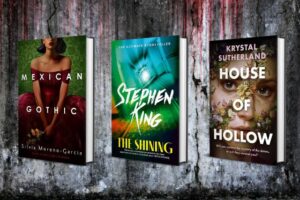
Ah, horror. The genre guaranteed to keep you awake at night.
Much like fantasy and science fiction, the horror genre needs heavier world building. Readers may not be familiar with some of the supernatural, mystical, or monstrous concepts in your world. So, it may take more words to describe them.
Also, horror is a genre full of suspense. Most often, authors create suspense by slowing things down and dwelling on emotion and setting. Achieving this requires a few more words.
100,000 words is a perfectly reasonable word count for a horror novel.
Historical Fiction Novel Word Count (75,000-100,000 words)
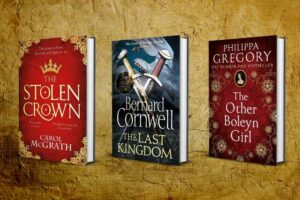
Like fantasy, sci-fi and horror, historical fiction books have a higher word count. Unlike fantasy, sci-fi and horror, it has nothing to do with fantastical elements. Historical fiction authors need time to describe historical elements, and this requires more words.
Note: more words doesn’t mean too many words. Be careful you don’t proritise setting over pacing and plot. All three are important.
A word count between 75,000 and 100,000 is exactly what historical fiction readers expect.
Literary Fiction Novel Word Count (50,000-100,000 words)
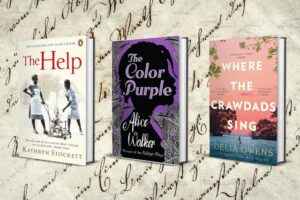
Literary fiction can be on the shorter end, or it can run a little longer.
A lot of this—as you would expect in literary fiction—comes down to the author’s stylistic choice. You can choose to write what I call a long vignette. These are literary novels that capture a poignant moment in time. You can also write sprawling lit fic which cover your protagonist’s entire life.
It’s also important to note that literary fiction deals with a huge amount of character development and emotion. It takes time—and word count—to build these things into a novel.
The last thing to consider is that literary fiction employs longer, more lyrical sentences.
Aiming for 50,000-100,000 words will see you right if you’re writing literary fiction.
Memoir and Narrative Nonfiction (60,000-90,000 words)

Much like literary fiction, memoir and narrative non-fiction deals with emotion and character development. Any genre that’s heavy on character needs a longer word count.
Memoir can (and should) be well-paced, while keeping the larger word count.
60,000-90,000 words is the sweet spot for memoir and narrative non-fiction.
Average Word Count for a Novel FAQs
How Do I Know if My Novel is the Right Length?
It’s tricky to know whether your novel is the right length. There are two things you can do to make sure you’re on the right track:
Look at other books in your genre: Buy the paperback version of your favourite genre books, or look at the page count on the Amazon store. You’ll notice that the average page count of books in your genre are really similar.
Follow the word count guidelines in this article: We’ve given you the broad strokes of word counts by age range and genre here. If you follow our advice, you won’t go far wrong.
What About Word Counts Per Scene?
Word count per scene is a really important factor for genre.
The general rule of thumb is, the faster-paced your genre, the shorter and more concise your scenes should be.
Look at an author like James Patterson. He writes fast-paced action thrillers. He makes the stylistic choice to write super short, single scene chapters. This adds to the increased pacing. Contrast that with an epic fantasy author like Terry Brooks, and you can see the difference. Brooks writes longer scenes and chapters, because that’s typical in the epic fantasy genre.
How Can Fictionary Help with Word Count Per Scene?
The Fictionary Story Editing Software has a lot of visual insights which can help you analyse your story on an objective level.
One of those is the Word Count Per Scene Insight.
You can use the Word Count Per Scene Insight to see anomalies in scene word counts. Using this, you can tell where a scene might be too long for your genre, which slows the pace. You can also see where your scenes might be too short, which can make pacing feel rushed.
Conclusion: Average Word Count for a Novel

Well, folks, we’ve taken a leisurely stroll through the wide world of word counts.
And while the magic word count number might seem as elusive as a unicorn, remember this: every genre reader has word count expectations.
Your author voice, your subgenre, and your novel’s pacing all influence your word count.
So, what’s the golden rule?
Well, truth be told, there isn’t one. It’s all about what feels right for your story and meets the expectations of your readers. Take the guidelines provided here as guardrails, not concrete walls.
They’re designed to guide you, not box you in.
And remember, if you want to check your Word Count Per Scene and see if you’re on the right track, take a 7 day free trial of the Fictionary software today.

